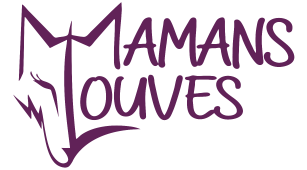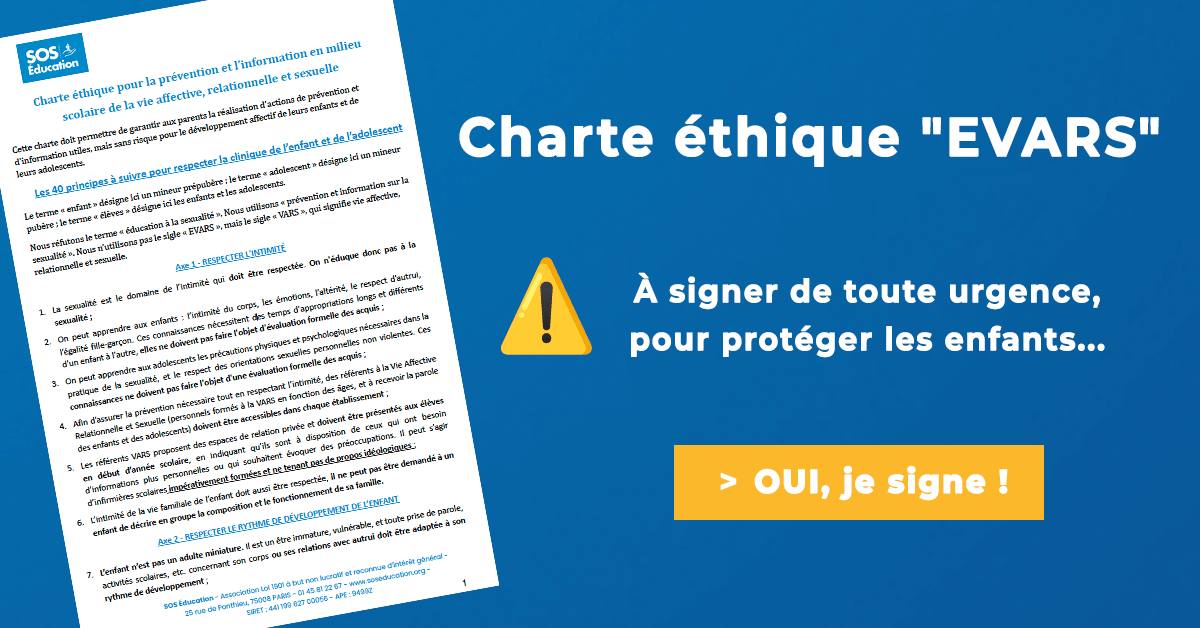Systematizing the evaluation of the impact of public policies on the health and well-being of children and adolescents
Since the beginning of the introduction of health measures in schools, and more specifically since the mandatory wearing of masks, we have repeatedly requested, through official channels, that a study be carried out into the impact of these measures on the physical and mental health of our children, enabling us to measure the benefit/risk balance of these unprecedented measures.
The WHO recommended studies and monitoring of the impact of health measures, which our government never put in place.
We support this petition, which has been posted on the Senate website, and we are asking all our members and parents to support it, so that a commission of inquiry can finally be set up and force our leaders to take the health and well-being of children and adolescents into consideration in public policy, so that our children are never again sacrificed on the altar of health policy, and so that the best interests of the child are respected.
The “best interests of the child” are enshrined in article 3.1 of the Convention on the Rights of the Child (CRC), which states that “in all actions concerning children, whether undertaken by public or private social welfare institutions, courts of law, administrative authorities or legislative bodies, the best interests of the child shall be a primary consideration”.
We needed to collect as many signatures as possible before December 31, 2022.
Senate petition no. 1065 https://petitions.senat.fr/initiatives/i-1065 will close on December 30, 2022, and has so far collected only 3186 signatures.
The complexity and mistrust of the France Connect connection required to sign the contract were the reason for this action, even though it was the only one that could AUTOMATICALLY and OBLIGATORILY trigger parliamentary action, in this case a fact-finding mission.
We’ve decided to ensure the continuity of this approach by creating ANOTHER, totally IDENTICAL PETITION on the Les Lignes Bougent platform.
‼️ If this second petition gathers a significant number of signatures, we’ll be able to put it to parliamentarians and get them to take the issue into their own hands. ‼️
We’re counting on you to sign it and distribute it widely!
Here are its contents:
“Children are, by their very nature and dependence, vulnerable within environments and organizations made by adults for adults.
Through social interaction with adults and peers, they build the cognitive, social and emotional resources they need to cope with the events they encounter and will encounter throughout their lives.
Their development and health are, and will continue to be, shaped by the experiences they undergo, and by the ability of adults to protect and support them through these experiences. Did we do it during the COVID-19 crisis?
Even though children and adolescents, with a few exceptions, were not vulnerable to a serious form of Covid-19, we adults accepted measures that were extremely restrictive for them: Compulsory wearing of masks at school nearly 50 hours a week, even outdoors in very hot weather and during sports activities, repeated tests, sometimes several times a week, drastic school health protocols leading to the isolation of contact/covid children, vaccinated or not, accentuating inequalities in learning, repeated confinement and injunction to social distancing…
Worse still, at a time when the impetus provided by pediatric societies and the commission of inquiry led by Sandrine Mörch suggested a real political awakening, unprecedented measures, including the health pass, have been imposed on our children without any societal reflection or consideration for the warnings of professionals in the field, public health professionals and parents with parental authority (annihilated de facto and by law). Let’s not forget that this vaccination was not justified for what should have been its primary objective: the individual protection of children and adolescents with no co-morbidities.
These measures were initially taken to protect adults. They have been taken without any objectification of the benefit-risk ratio for children and adolescents, as is normally expected for any public health measure. As a result, they have exposed healthy children and adolescents to major consequences for their health and development, widely documented over the past two years in the scientific literature (a, b): anxiety and depression, delayed care, exposure to intra-family violence, delayed education, weight gain, increased inequalities, etc….
Lastly, these measures were taken without any consultation of the parties involved (parents, school heads and teachers, municipalities, educators, etc.), which would have enabled schools, neighborhoods, leisure centers, etc. to assess their real value and adapt them to the needs of children and teenagers (proportionality according to the level of risk, alternative activities (outdoor classes, air purifiers, adapted physical activities, etc.). At a time when they need to feel safe, to meet up, to play and to move around, we adults, caught up in a movement with no room for hindsight, have stigmatized them, locked them up, taken them out of school, deprived them of places to meet and develop, to protect us from a virus that they had no reason to fear compared to other infections, such as influenza, chickenpox and bronchiolitis.
Over the past two years, we’ve seen a steady stream of reports pointing out the burden we’re placing on them, with no change in sight: the report from the commission of inquiry into the effect of the containment and management of the covid-19 crisis on children and young people… (c) (December 19, 2020), the successive reports (d) from Mrs Edon, Défenseure des Droits, in November 2020, the edifying report commissioned by the Syndicat National des Médecins de PMI (National Union of PMI Doctors) (e), etc… The Haut Conseil de la Santé Publique (HCSP) itself, which was at the forefront of decision-making on these measures, recently acknowledged that “both decision-makers and experts have found it difficult to take a holistic approach to the pandemic: the HCSP issued numerous recommendations to protect people’s physical health from potential contamination, but failed to anticipate the pandemic’s secondary effects on the population’s mental and social health (the risk/benefit balance of containment was not assessed)” (ref: Bruat C, Monnet E, Azanowsky JM, Faliu B, Mansour Z, Chauvin F. Interaction between science advice and policymaking in time of COVID-19: a French perspective. Eur J Public Health. 2022 Jun 1; 32(3): 468-473.)
Finally, the management of the Covid-19 crisis, as with many other issues, is not an isolated case of dysfunction; the pandemic has reinforced or exacerbated the weaknesses of our system. Taking the best interests of the child into account is clearly not a priority in public policy, as illustrated by the successive reforms of the Education Nationale (increasing inequalities) (f), the too timid progress of measures to reconcile family and professional life (including parental leave), regularly pointed out by UNICEF, childcare arrangements in the early childhood sector giving priority to numbers over quality, the decay of child protection and mother-child support, etc…
What do we envisage for the future, when a new bill to extend the state of health emergency measures will be examined from June 22, 2022, at a time when France has committed itself to the European Childhood Guarantee aimed at “structuring a public policy for preventing and combating poverty and social exclusion among the youngest members of society” and fostering “the protection and promotion of children’s rights”?
Because the quality of a society is measured by the way it treats its children, we adults, citizens, parents, grandparents, children’s professionals and elected representatives in the field, demand that whatever the circumstances, including in times of crisis, the protection and health of children should finally be a priority in France.
In line with the principle of health in all policies (g), we call for an a priori impact analysis of all measures likely to affect the health and well-being of children and adolescents (i.e., an anticipatory analysis of the effect of measures on health and well-being as a whole), in order to consider their overall benefits and adaptability. We ask that these analyses and assessments be carried out in consultation with civil society, and that the results be made public. We demand that those in charge of public policy be held to account for their decisions, in line with the fundamental principles of public health and democracy.
(a)BMJ 2021;372:n521
(b) “europepmc” website
(c)https://www.assemblee-nationale.fr/dyn/15/rapports/cecovidj/l15b3703_rapport-enquete#
(d)https://www.defenseurdesdroits.fr/fr/rapports-annuels/2020/11/rapport-annuel-sur-les-droits-de-lenfant-2020-prendre-en-compte-la-parole
https://www.defenseurdesdroits.fr/fr/rapports-annuels/2021/11/rapport-annuel-enfant-sante-mentale-le-droit-au-bien-etre
https://defenseurdesdroits.fr/fr/communique-de-presse/2021/07/extension-du-passe-sanitaire-les-10-points-dalerte-de-la-defenseure-des
https://juridique.defenseurdesdroits.fr/index.php ?lvl=notice_display&id=41727&opac_view=-1
https://www.defenseurdesdroits.fr/fr/communique-de-presse/2022/06/la-defenseure-des-droits-appelle-la-premiere-ministre-a-mettre-en-place(e) Study initiated by SNMPMI 2020
(f) Publications – PISA [Internet]. [cited 2022 Feb 23]. Available from: https://www.oecd.org/pisa/publications/pisa-2018-results.htm
(g) https://www.who.int/activities/promoting-health-in-all-policies-and-intersectoral-action-

